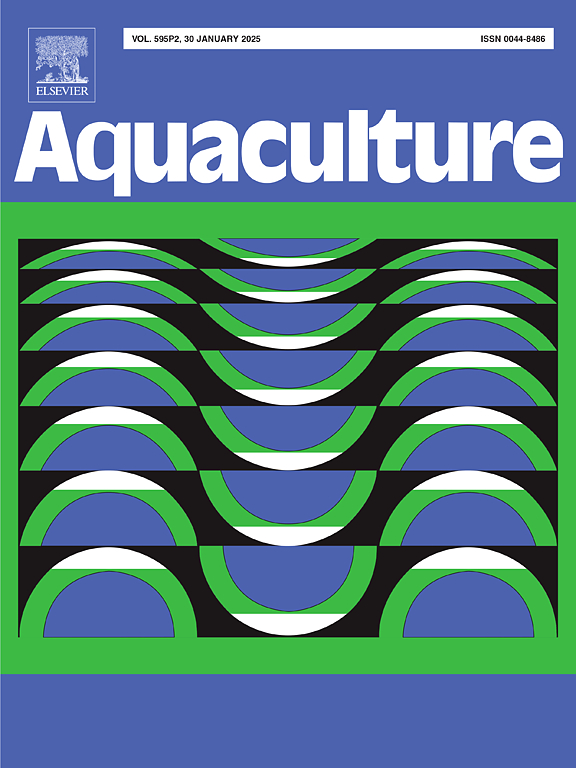大黑鲈背鳍细胞系的建立及MSRV诱导的细胞凋亡
IF 3.9
1区 农林科学
Q1 FISHERIES
引用次数: 0
摘要
大口黑鲈(Micropterus salmoides),又称加州黑鲈,是世界范围内重要的淡水养殖品种。大口黑鲈横纹病病毒(MSRV)是威胁大口黑鲈养殖可持续发展的主要病原菌。在此,我们建立了一种新的细胞系,命名为Micropterus salmoides dor背鳍(MSDF)细胞系,该细胞系支持MSRV的繁殖,并可以研究病毒诱导的细胞凋亡。转录组分析显示,MSRV感染改变了宿主基因表达,上调了313个基因,下调了126个基因,这些基因在免疫/代谢途径中功能丰富,包括p53信号通路、凋亡、过氧化物酶体、溶酶体途径和核苷酸代谢。DAPI和TUNEL染色证实MSRV感染诱导MSDF细胞凋亡。值得注意的是,抑制细胞凋亡抑制病毒复制,线粒体功能障碍与msrv引发的细胞凋亡有关。总之,我们开发了一种MSRV易感细胞系(MSDF),作为表征MSRV发病机制,特别是其凋亡机制的理想平台。本文章由计算机程序翻译,如有差异,请以英文原文为准。
Establishment of a dorsal fin cell line from largemouth bass (Micropterus salmoides) and its apoptosis induced by MSRV
The largemouth bass (Micropterus salmoides), also known as the California bass, is an important freshwater aquaculture species worldwide. Micropterus salmoides rhabdovirus (MSRV) is a major pathogen threatening the sustainable development of largemouth bass aquaculture. Here, we established a novel cell line, named Micropterus salmoides dorsal fin (MSDF) cell line, which supports MSRV propagation and enables investigation of virus-induced apoptosis. Transcriptome analysis showed that MSRV infection altered host gene expression, upregulating 313 genes and downregulating 126 genes, which were functionally enriched in immune/metabolic pathways, including the p53 signaling pathway, apoptosis, peroxisome, lysosome pathways, and nucleotide metabolism. Furthermore, DAPI and TUNEL staining confirmed that MSRV infection induced apoptosis in MSDF cells. Notably, inhibiting cell apoptosis suppressed viral replication, and mitochondrial dysfunction was implicated in MSRV-triggered apoptosis. Collectively, we developed an MSRV-susceptible cell line (MSDF), which serves as an ideal platform for characterizing MSRV pathogenesis, particularly its apoptotic mechanisms.
求助全文
通过发布文献求助,成功后即可免费获取论文全文。
去求助
来源期刊

Aquaculture
农林科学-海洋与淡水生物学
CiteScore
8.60
自引率
17.80%
发文量
1246
审稿时长
56 days
期刊介绍:
Aquaculture is an international journal for the exploration, improvement and management of all freshwater and marine food resources. It publishes novel and innovative research of world-wide interest on farming of aquatic organisms, which includes finfish, mollusks, crustaceans and aquatic plants for human consumption. Research on ornamentals is not a focus of the Journal. Aquaculture only publishes papers with a clear relevance to improving aquaculture practices or a potential application.
 求助内容:
求助内容: 应助结果提醒方式:
应助结果提醒方式:


